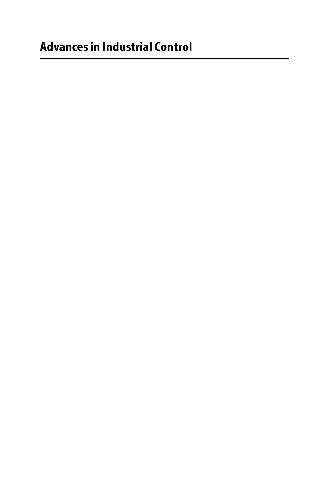

Most ebook files are in PDF format, so you can easily read them using various software such as Foxit Reader or directly on the Google Chrome browser.
Some ebook files are released by publishers in other formats such as .awz, .mobi, .epub, .fb2, etc. You may need to install specific software to read these formats on mobile/PC, such as Calibre.
Please read the tutorial at this link: https://ebookbell.com/faq
We offer FREE conversion to the popular formats you request; however, this may take some time. Therefore, right after payment, please email us, and we will try to provide the service as quickly as possible.
For some exceptional file formats or broken links (if any), please refrain from opening any disputes. Instead, email us first, and we will try to assist within a maximum of 6 hours.
EbookBell Team

4.7
76 reviewsAdvanced Control of Industrial Processes presents the concepts and algorithms of advanced industrial process control and on-line optimisation within the framework of a multilayer structure. Relatively simple unconstrained nonlinear fuzzy control algorithms and linear predictive control laws are covered, as are more involved constrained and nonlinear model predictive control (MPC) algorithms and on-line set-point optimisation techniques.
The major topics and key features are:
• Development and discussion of a multilayer control structure with interrelated direct control, set-point control and optimisation layers, as a framework for the subject of the book.
• Systematic presentation and stability analysis of fuzzy feedback control algorithms in Takagi-Sugeno structures for state-space and input-output models, in discrete and continuous time, presented as natural generalisations of well-known practical linear control laws (like the PID law) to the nonlinear case.
• Thorough derivation of most practical MPC algorithms with linear process models (dynamic matrix control, generalised predictive control, and with state-space models), both as fast explicit control laws (also embedded into appropriate structures to cope with process input constraints), and as more involved numerical constrained MPC algorithms.
• Development of computationally effective MPC structures for nonlinear process models, utilising on-line model linearisations and fuzzy reasoning.
• General presentation of the subject of on-line set-point improvement and optimisation, together with iterative algorithms capable of coping with uncertainty in process models and disturbance estimates.
• Complete theoretical stability analysis of fuzzy Takagi-Sugeno control systems, discussion of stability and feasibility issues of MPC algorithms as well as of tuning aspects, discussion of applicability and convergence of on-line set-point improvement algorithms.
• Thorough illustration of the methodologies and algorithms by worked examples in the text.
• Control and set-point optimisation algorithms together with results of simulations based on industrial process models, stemming primarily from the petrochemical and chemical industries.
Starting from important and well-known techniques (supplemented with the original work of the author), the book includes recent research results mainly concerned with nonlinear advanced feedback control and set-point optimisation. It is addressed to readers interested in the important basic mechanisms of advanced control, including engineers and practitioners, as well as to research staff and postgraduate students.